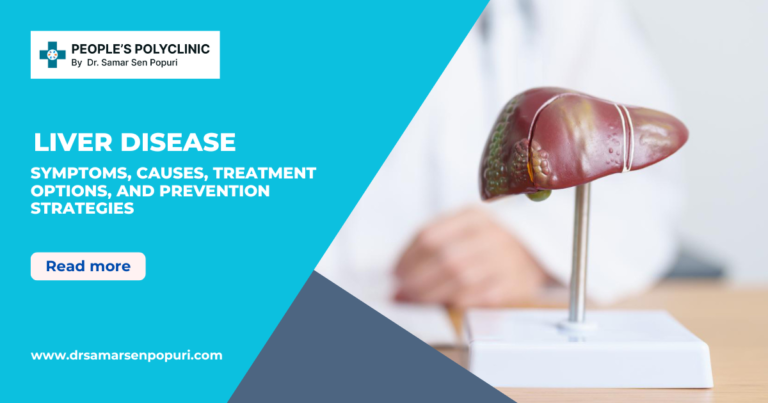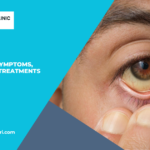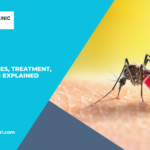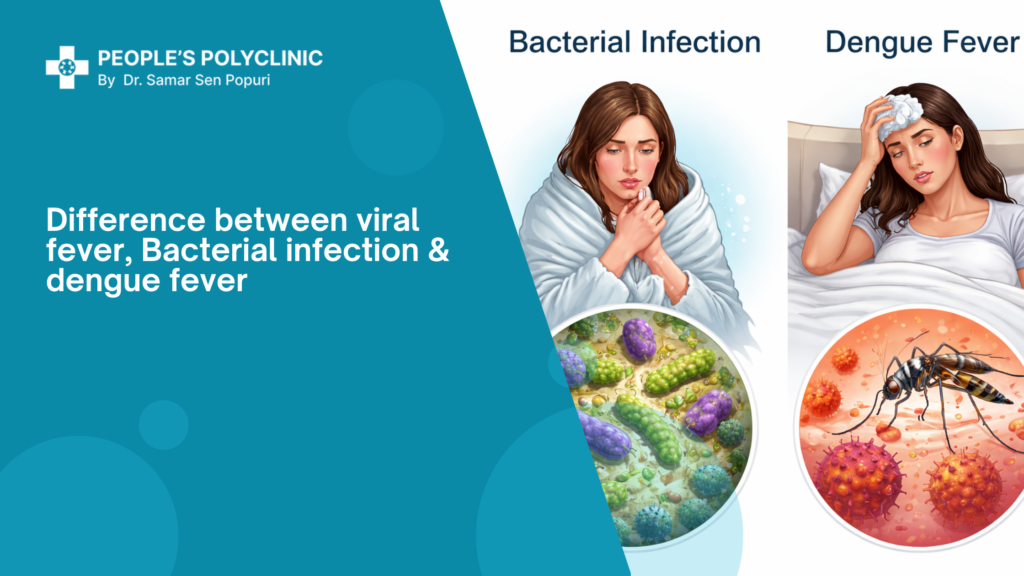Introduction
The liver is one of the body’s most hardworking organs. It helps digest food, filters toxins, and produces essential proteins that keep the blood clotting and flowing properly. But when the liver is damaged, the consequences can be serious. Liver disease is not just a single illness, it’s a broad term for conditions that affect the liver’s ability to function.
For people in Hyderabad, where lifestyle and dietary changes are contributing to rising cases, understanding liver disease symptoms, causes, treatment options, and prevention strategies is more important than ever. If you or a loved one are looking for liver disease treatment in Hyderabad, early awareness and timely care can make all the difference.
What is Liver Disease?
Liver disease refers to any condition that damages the liver and prevents it from functioning properly. These issues may arise from infections, genetic conditions, lifestyle habits, or long-term health problems. Over time, untreated chronic liver disease can progress into scarring (cirrhosis) and eventually liver failure, which may be life-threatening.
Common types include:
- Hepatitis (viral infections like hepatitis A, B, or C)
- Fatty liver disease (linked to obesity, alcohol, or metabolic issues)
- Cirrhosis (advanced scarring of the liver)
- Liver cancer
Understanding the stages of liver disease is critical—because early intervention offers the best chance to reverse or control damage.
Symptoms of Liver Disease
One challenge with liver disease is that it may not cause obvious signs in its early stages. Still, there are some red flags to watch out for.
Common liver disease symptoms include:
- Yellowing of skin and eyes (jaundice)
- Belly pain and swelling
- Swelling in legs and ankles
- Dark urine and pale stools
- Constant fatigue and weakness
- Nausea or vomiting
- Loss of appetite
- Itchy skin
- Easy bruising or bleeding
Early symptoms of liver disease and when to seek medical help in Hyderabad should never be ignored. If you notice yellowing of eyes or persistent abdominal pain, it’s important to consult a doctor immediately for liver disease diagnosis.
When to See a Doctor for Liver Disease
Many people delay seeking care until symptoms worsen. But timely medical help is crucial. You should consider visiting a healthcare professional for liver disease treatment in Hyderabad if you experience:
- Persistent jaundice
- Ongoing fatigue or weakness
- Severe abdominal swelling or pain
- Sudden unexplained weight loss
At advanced stages, complications can develop rapidly, which is why early consultation saves lives.
Causes of Liver Disease
The causes of liver disease are varied, ranging from infections to lifestyle habits. Some of the major contributors include:
- Viral Infections – Hepatitis A, B, and C are common infections that cause liver inflammation.
- Alcohol Consumption – Long-term excessive drinking can lead to alcoholic hepatitis, fatty liver, and cirrhosis.
- Obesity & Metabolic Issues – These can result in fatty liver disease, now seen more frequently in Hyderabad due to sedentary lifestyles.
- Genetics – Conditions like Wilson’s disease or hemochromatosis can cause inherited liver disorders.
- Cancer & Growths – Liver cancer and bile duct tumors are serious causes of liver damage.
Identifying the exact cause helps determine the right treatment approach.
Risk Factors for Liver Disease
Anyone can develop liver disease, but some people are at higher risk. Common risk factors for liver disease include:
- Heavy alcohol use
- Obesity and diabetes
- Family history of liver problems
- Tattoos or body piercings with poor hygiene standards
- Sharing needles or unsafe blood transfusions
- Unprotected sex (increasing hepatitis risk)
- Long-term exposure to harmful chemicals or toxins
People with these risk factors should go for regular liver disease diagnosis and screening tests.
Complications of Liver Disease
If not managed properly, liver disease can lead to severe complications such as:
- Cirrhosis – Scarring of the liver that can block normal function.
- Liver failure – When the liver stops working completely.
- Liver cancer – Often linked to cirrhosis or chronic hepatitis.
- Bleeding disorders – Since the liver produces clotting factors, damage may cause easy bruising and bleeding.
These complications highlight the importance of early liver disease treatment in Hyderabad.
Diagnosis of Liver Disease
Wondering, “How is liver disease diagnosed and treated in Hyderabad?” Doctors usually recommend:
- Blood tests (Liver function tests to check enzyme levels)
- Imaging tests (Ultrasound, CT, or MRI scans to look for damage)
- Liver biopsy (to study a tissue sample under a microscope)
Accurate liver disease diagnosis helps determine whether the condition is at an early or advanced stage.
Treatment and Management of Liver Disease
The right liver disease treatment in Hyderabad depends on the type and severity of the condition:
- Antiviral medications – For hepatitis B and C.
- Lifestyle modifications – Diet changes and exercise for fatty liver disease treatment.
- Cirrhosis treatment – Medications to slow progression, and in severe cases, liver transplant.
- Surgery – For bile duct obstructions or tumors.
- Liver transplant – Required when the liver is severely damaged.
For patients, the key question is often: “Can liver disease be reversed or cured?”
The answer is yes, in certain cases. For example, fatty liver can often be reversed with weight loss and healthy living. However, advanced stages like cirrhosis may only be managed, not cured.
Outlook and Prognosis
The liver disease prognosis depends on how early the condition is detected. With timely liver disease treatment in Hyderabad, patients can live a healthy life, especially if they make necessary lifestyle changes.
Prevention of Liver Disease
The good news is, many forms of liver disease can be prevented. How can I lower my risk of liver disease? Here are some tips:
- Limit alcohol consumption
- Get vaccinated for hepatitis B
- Maintain a healthy weight
- Avoid unprotected sex and sharing needles
- Use safe and hygienic practices for tattoos or piercings
- Eat a balanced diet and exercise regularly
- Avoid exposure to harmful chemicals
Living with Liver Disease
For those already diagnosed, living with liver disease requires lifestyle adjustments and ongoing medical care. Tips include:
- Eating a liver-friendly diet
- Taking prescribed medications regularly
- Avoiding alcohol completely
- Attending regular checkups
- Seeking emotional and mental health support
Support from family and a trusted liver disease hospital in Hyderabad can greatly improve quality of life.
Conclusion
Liver disease is a serious condition, but with the right knowledge, timely diagnosis, and proper care, it can be managed effectively. From identifying early liver disease symptoms to understanding treatment and prevention strategies, awareness is the first step towards better health.
For those searching for liver disease treatment in Hyderabad, People’s Poly Clinic stands out for its comprehensive care, expert doctors, and patient-focused approach. Whether you are seeking help for chronic liver disease, fatty liver disease treatment, or cirrhosis treatment, our team ensures advanced and affordable medical solutions. Take charge of your liver health today, because prevention and early action save lives.
Frequently Asked Questions (FAQs)
1. What are the first signs and symptoms of liver disease?
Fatigue, yellowing of the eyes/skin, abdominal pain, and dark urine.
2. What are the signs of later-stage liver disease?
Severe swelling, confusion, easy bleeding, and fluid build-up in the legs.
3. What causes liver disease?
Viral infections (hepatitis B and C), alcohol, obesity, genetics, and cancer.
4. How is liver disease diagnosed?
Through blood tests, imaging scans, and sometimes liver biopsy.
5. Can liver disease be reversed?
Early stages like fatty liver can often be reversed; advanced cirrhosis requires ongoing management or transplant.
6. How can I lower my risk of liver disease?
Avoid alcohol, maintain a healthy weight, get vaccinated, and avoid unsafe practices.
7. What complications can arise from liver disease?
Cirrhosis, liver failure, cancer, and bleeding disorders.
8. How do you treat liver disease?
With medications, lifestyle changes, antiviral drugs, or surgery depending on the type and stage.
9. Can liver disease be prevented?
Yes—through healthy living, hepatitis vaccinations, and safe hygiene practices.








